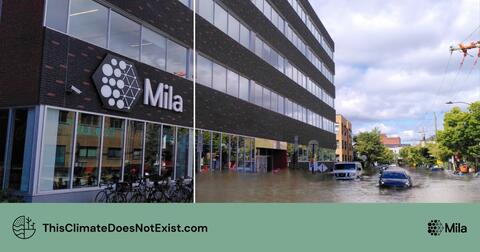
Over the past few years, many members of the Mila community have focused their research efforts on the environment and climate change. As we celebrate Earth Day 2022, we present an overview of some of the research projects that are making an impact in the scientific community and society at large.
Q&A with David Rolnick, lead author of the report “Tackling Climate Change with Machine Learning”
We had the opportunity to sit down with Mila Professor David Rolnick—a pioneer at the intersection of ML and climate change—Canada CIFAR AI Chair, Assistant Professor in the School of Computer Science at McGill University and Co-Founder and Chair of Climate Change AI. During this interview, Rolnick provided an overview of the report, some of the problem areas that can be addressed by machine learning, and the promising research and business opportunities ahead as the world gathers to tackle climate change.
Read the report, “Tackling Climate Change with Machine Learning,” published in February 2022.
This Climate Does Not Exist
This past October, an interdisciplinary team led by Mila launched an interactive website to visualize the impacts of climate change anywhere on the planet.
The website, This Climate Does Not Exist, invites users to project themselves into environments transformed by climate change. What would a place look like if it was hit by flooding, wildfires or smog? Thanks to a complex algorithm, the site generates realistic filters of the effects of climate change on any location in Google Street View.
The site uses a class of algorithms called generative adversarial networks, or GANs. Originally designed by researchers at Mila, GANs are now being used widely to generate highly realistic images. In this way, artificial intelligence is being harnessed in the global fight against climate change.
The project is the culmination of two years of work and has mobilized over 30 specialists and collaborators under the direction of Yoshua Bengio, including lead researchers Sasha Luccioni, Victor Schmidt and Alex Hernandez-Garcia.
Recent publications
Discover recent publications co-authored by members of the Mila community in the fields of AI, climate change and the environment.
- Toward Foundation Models for Earth Monitoring: Proposal for a Climate Change Benchmark
- TIML: Task-Informed Meta-Learning for Agriculture
- ClimART: A Benchmark Dataset for Emulating Atmospheric Radiative Transfer in Weather and Climate Models
- Multi-agent reinforcement learning for renewable integration in the electric power grid




